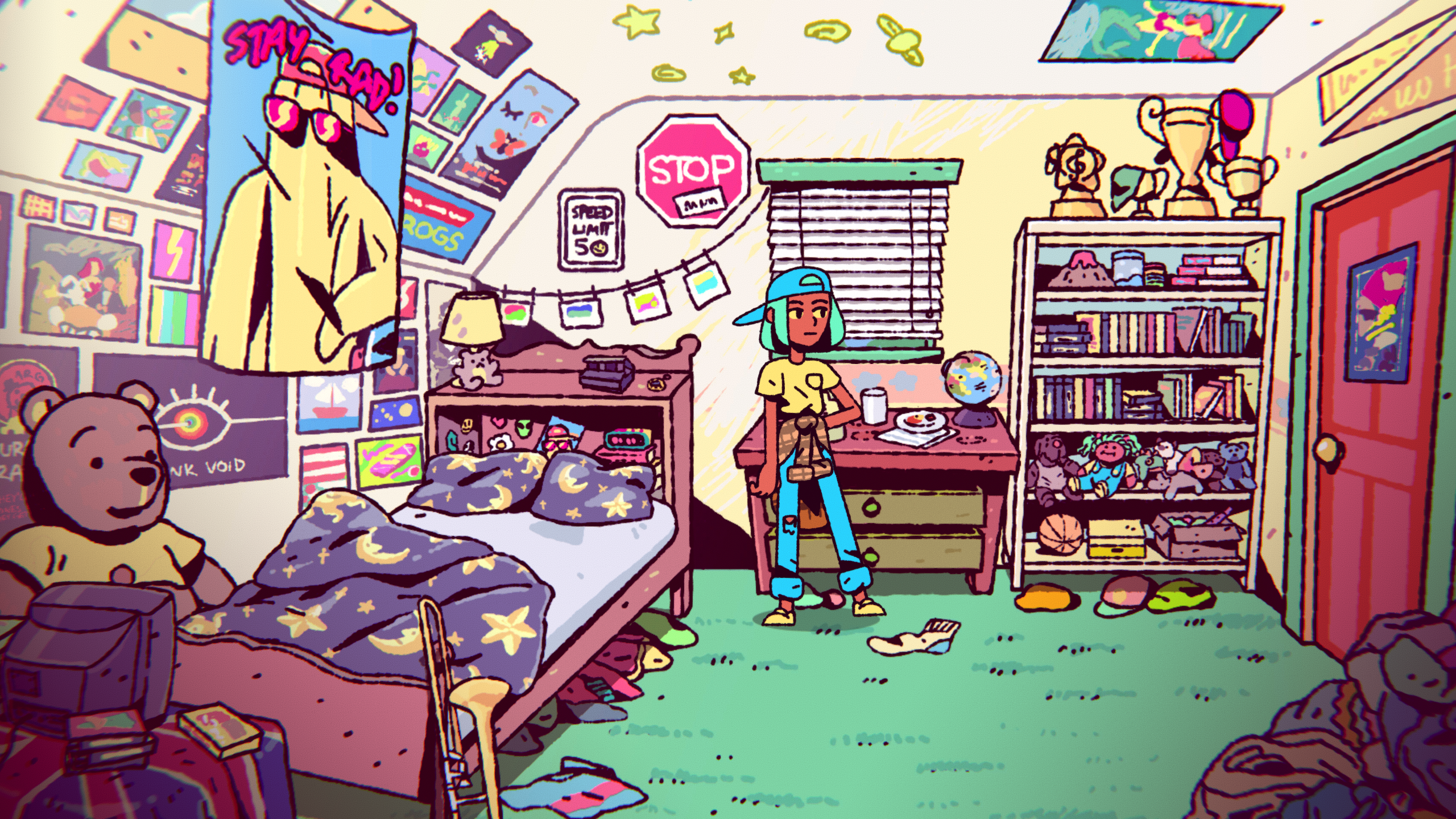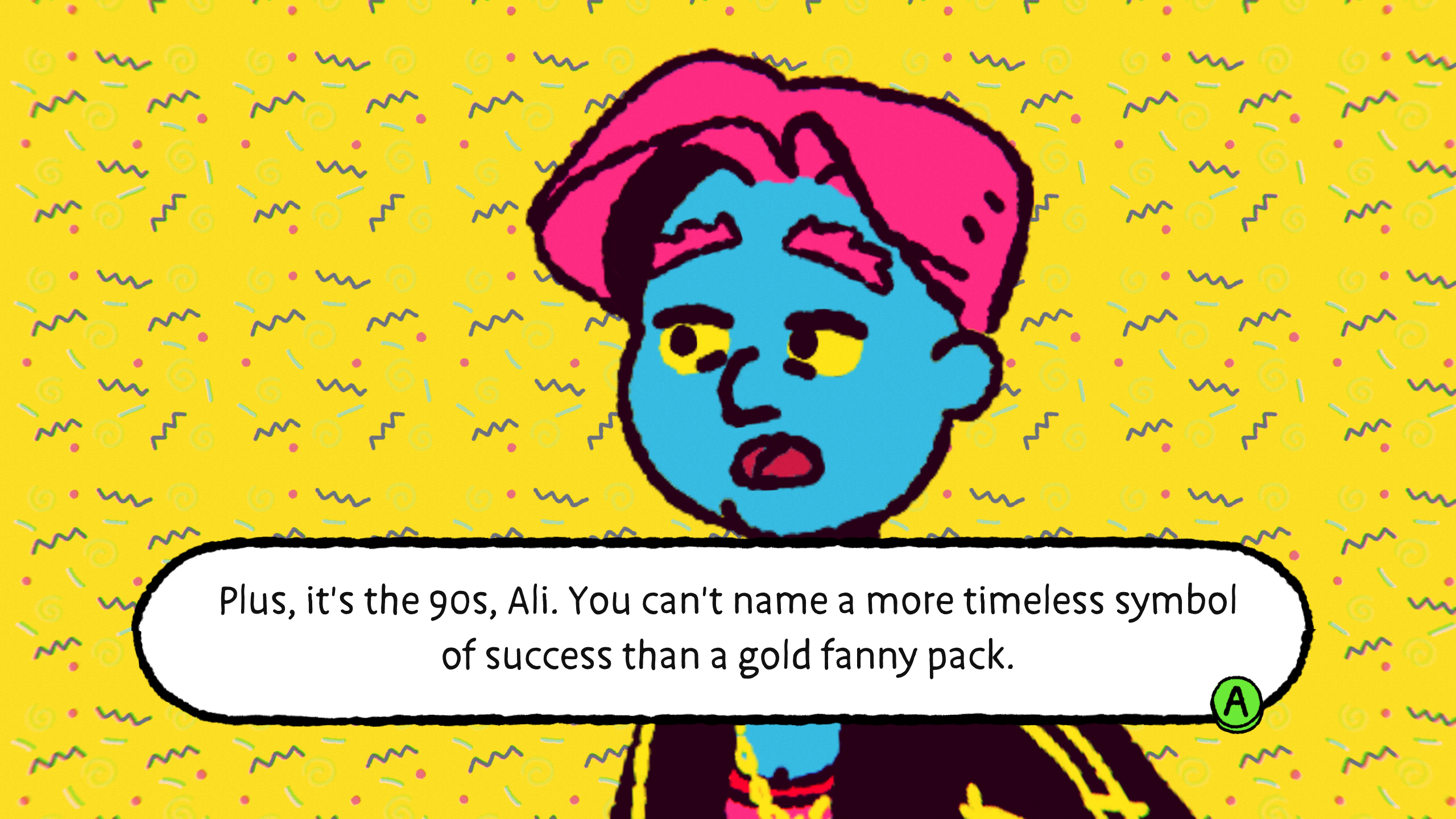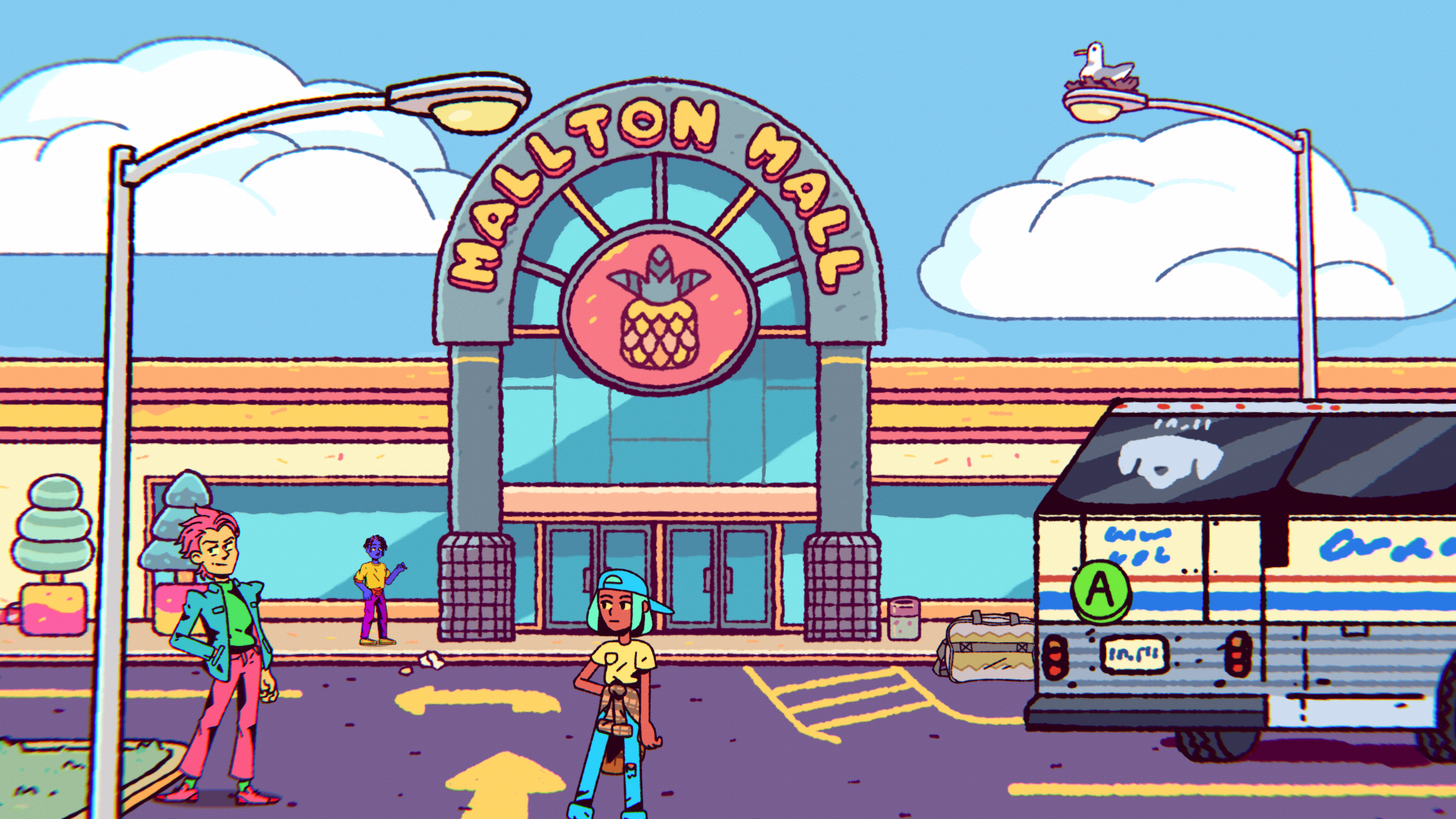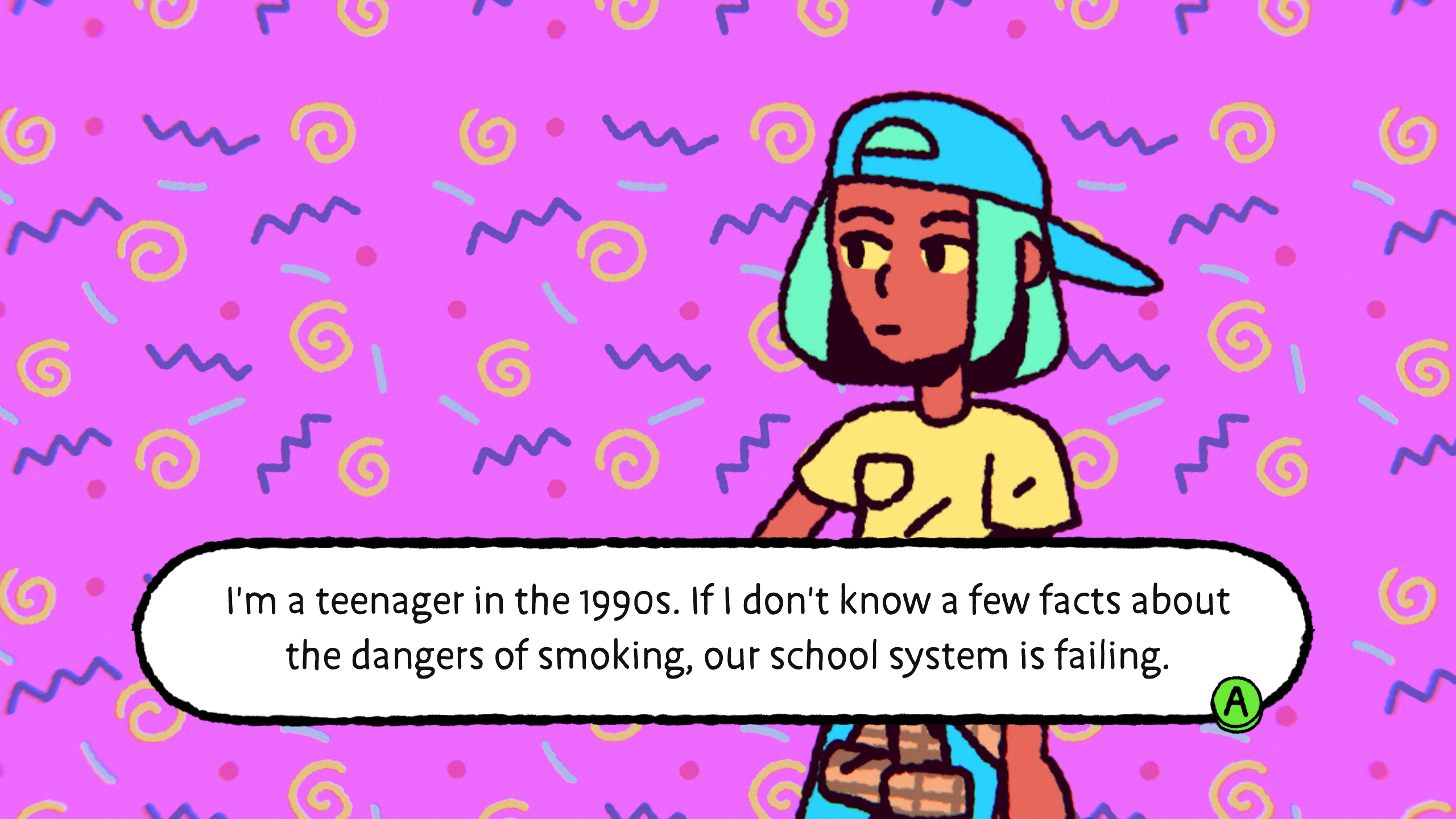You play as Ali, a 17-year-old stuck helping her mum (sorry, “mom”) out at the video rental store. Deep breath: before internet-based streaming and downloading, people used to buy - or simply rent - films on chunky, plastic video cassettes that were the size of a book. A cassette is a thing that stores data on a roll of thin magnetic tape. They were a pain in the ass. Phew. Unfortunately, while your friends and classmates are all busy with much more interesting summer plans, your mom is sending you off to band camp for a fortnight so you can fulfil her wishes of becoming a famous trombonist. Unfortunately, again, just before you’re set to go, you overhear your mom dealing with loan sharks who are urgently wanting their money back, or else it’ll be goodbye to Linda’s video shop. Despite the motherly assurances, Ali is so bummed out about what the future may hold by the time she returns from music camp. While hanging around town near the closed-up ice cream parlour, you meet Ted, a grifter passing time before heading out for his next scam. Here lies a potential solution to all of your problems: a way to quickly gain money while also avoiding band camp entirely. You begin by simply pickpocketing random members of the public with a one-button quick-time event (which, helpfully, you can disable). But Ted has his eyes set on much bigger rewards. He advises you to observe people, overhear conversations and wear potential disguises (such as fake moustaches and hats) to hustle for larger and larger amounts of money. The story and the gameplay work well as a concept here, given so many people were forced to walk around with cash in the 90s, compared to the modern relief of contactless card payments. The simple gameplay works: you wander around different environments stealing money from the absent-minded, listen to their conversations and try to score new ways of hustling. One example includes taking a pair of sunglasses and selling them to someone sitting in the window seat of a train. After your first day with Ted, he invites you along to the nearby mall, where you further practice these skills, having just lied to your mom. Soon, you’re in Las Venganza, a map that houses a cinema, hotels, a thrift store, coffee shops and a used car dealership. The place is scattered with characters and points of interest that are related (and unrelated) to your main tasks, where you could be all set to clearing the debt stemming from the video store. And if you need any help, there’s the Earl-like (as in, ToeJam & Earl) sidekick ghost who’s ready to hand out tips if you ever get stuck. But you soon discover you’re at great risk by trying to scam others out of their hard-earned, hard-saved dollars. There’s no doubt people will be drawn to The Big Con because of it’s breezy, colourful aesthetics. It’s what hooked me from an E3 trailer last year. Prior to being assigned this review, by pure coincidence, I had recently looked into Disney+ for the first time ever (spoiler: it’s all nostalgic and nostalgia-based junk?) just so I could check out the classic animated series Doug. There’s no doubt the art style is reminiscent of that era, and Ali reminded me of the fictional 90s character Alex Mack, at least visually. The art and animation is stunning to look at. But the game works in many ways, not just because it has an interesting, family-based story at the centre of it, akin to teen sitcoms and drama series from the 90s. It also somehow captures this inert attitude of sarcasm and unarrogant confidence that was so prescient in the pop cultural zeitgeist, something that was common in the (mature-rated) films of Richard Linkalter and Kevin Smith. I think it’s because so many of those, like Clerks, have interesting protagonists stumbling into storylines and environments with interesting and unusual secondary characters. In fact, The Big Con rewards you for engaging with as many people as possible and going deeper into conversations too, even if those people are blue or green-skinned, are determined to wear bucket hats like Jamiroquai, or look like they’ve walked straight from a Gabor Csupo series like Rugrats. The developers are also self-aware of the references they’re making, whether they’re direct or passive, adding to the tongue-in-cheek nature of it all. One includes a character who looks exactly like The Rock (“Dwayne Johnson” did not exist in the 90s, sorry), complete with a gold chain and fanny pack. There are other inspirations from the decade to behold. The opening title song sounds an awful lot like a Plumtree or Letters to Cleo song, and the pause screen screeches into view with faux CRT-like scan lines. I’m sure the accuracy of these would be better understood by the Digital Foundry guys. Despite the plethora of fanny packs, The Big Con works, and it’s all down to Ali. She’s a muddled teenager, concocting plans in her bedroom the same way Kenan & Kel would get up to mischief while wanting to, ultimately, do the right thing, even if it means being continually led astray on her quest. The teenage angst is mixed perfectly with grumpiness and snarkiness in equal measure, and the game is relatable to many teens (or even adults!) who’ve felt confused about life, have had FOMO, and want to do anything possible to make it all make sense again. The Big Con’s an endearing adventure worth experiencing.




